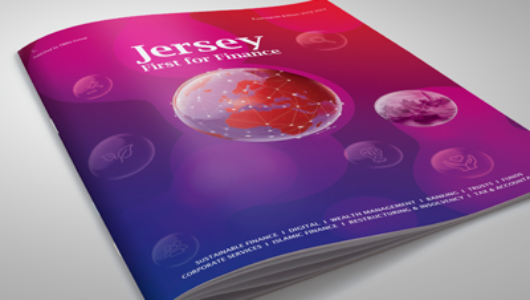Jersey has taken a considered approach to international tax policy and in particular to OECD two pillar work. Jersey is a small yet very open international finance centre and its Government’s approach to international tax policy supports the Island’s broader economic policy and vision for the future of its finance industry, as set out in the December 2021 Financial Services Policy Framework.
The Government of Jersey invests significantly in its work on the evolving international tax agenda. Stakeholder engagement is central to this work and takes place at all stages in the policy development process – from the early stages of policy design through to detailed legislation, implementation and administrative requirements. One of Jersey’s strengths is regular dialogue between Government, the regulator – the Jersey Financial Services Commission (JFSC) – and industry. This continuous dialogue promotes early identification of new business opportunities for Jersey. It also reinforces Jersey’s continued position at the forefront of adopting international standards and best practices, in a way that respects a level playing field among jurisdictions while also safeguarding Jersey’s long-term interests.
Good collaboration on international tax matters has served Jersey well in the last decade, through the implementation of evolving tax transparency rules, a new economic substance regime for companies and partnerships and clear, competitive tax rules for Limited Liability Partnerships (LLPs), other partnership vehicles and new proposals on Limited Liability Companies (LLCs).
THE OECD TWO PILLAR INITIATIVE
This collaborative approach is also central to Jersey’s current work on the OECD two pillar initiative, which addresses the tax challenges arising from the increasing digitalisation of the global economy. Jersey is a founding member of the OECD Inclusive Framework on Base Erosion and Profit Shifting (BEPS) and joined the international consensus of 137 Inclusive Framework member jurisdictions on the two pillar initiative in October 2021. Jersey is thus committed to implementation of the Minimum Standards contained in the two pillar package.
The Pillar One Minimum Standard targets the largest and most profitable global multinational groups – those with annual revenues of at least €20 billion and a profitability margin above 10%. It seeks to allocate a share of residual profits earned by qualifying groups across jurisdictions, based on the location of the group’s customers. Of particular relevance for Jersey, it will contain an important exclusion for certain regulated financial services businesses.
Pillar Two comprises a Minimum Standard treaty-based measure called the Subject to Tax Rule, which is intended to ensure that developing countries are not disadvantaged by low withholding tax rates in their Double Tax Agreements (DTAs). As a Minimum Standard, Jersey – along with other jurisdictions – will be required to implement this rule, to the extent that any of Jersey’s DTAs are not in line with the rules when they are ultimately finalised later in 2022 or into 2023.
The second part of the Pillar Two package is a significant new Global Anti-Base Erosion (GloBE) regime. GloBE is a set of international tax rules that have been carefully designed with interlocking mechanisms to ensure that in-scope multinational groups will pay a 15% minimum effective rate of taxation in each jurisdiction in which they operate.
The rules include a €750 million global annual revenue threshold for qualifying groups, with an exclusion for certain investment entities, including investment funds. There is also an exclusion for groups with a relatively small footprint in any jurisdiction. The starting point for the determination of GloBE income or loss will be the group’s consolidated financial accounting position, to which adjustments will be made to calculate the final defined GloBE income. This will include the exclusion of certain passive income.
GloBE is classed as a Common Approach and not a Minimum Standard. This means that Inclusive Framework member jurisdictions such as Jersey are not required to adopt the GloBE rules. If a member jurisdiction chooses to adopt the GloBE rules, it will implement and administer them in a consistent way. However, regardless of whether a jurisdiction adopts GloBE itself, it will accept the application of the GloBE rules applied by other Inclusive Framework members.
In April of this year, the Government of Jersey published a consultation paper entitled OECD Pillars 1 & 2: tax policy reflections. The aim of the paper was to provide as much clarity as possible on Jersey’s position regarding the two pillars, to assist in-scope groups in their preparation for global implementation. The 10 key principles set out in the Paper are as follows:
- Jersey’s commitment to maintaining an attractive business environment, based on certainty and simplicity, is unchanged.
- Most companies in Jersey will be outside the scope of the OECD two-pillar initiative.
- Jersey will implement the Minimum Standards in the OECD two-pillar solution.
- When it comes to implementing the GloBE rules, the best choice for Jersey may be to implement GloBE with a 15% domestic minimum tax for companies that are part of in-scope GloBE groups. This is likely to offer the greatest certainty and simplicity to business.
- If Jersey decides to implement GloBE, that implementation is not likely to take place before 1st January 2024.
- Jersey would be well-placed to implement GloBE if it chooses to do so, since the Island has a trusted and wellresourced tax authority administering an existing corporate tax regime.
- Jersey’s domestic corporate tax regime would remain unchanged for those outside the scope of GloBE.
- Any final political decision on GloBE will take account of stakeholder feedback and the actions of a critical mass of jurisdictions over the coming months.
- The decision on GloBE will not be based on short-term revenue-raising considerations.
- Jersey will continue to work with Guernsey and the Isle of Man to align approaches to implementation of Pillar One and Pillar Two.
The next 12 months will be key to the global implementation of this OECD initiative. Jersey officials continue to participate in intensive OECD technical discussions on design aspects of Pillar One and on the Pillar Two GloBE implementation framework. This includes important work on GloBE ‘safe harbours’.
Jersey is also carefully monitoring the international developments on GloBE adoption in the EU, US, UK and elsewhere. No political decision has yet been taken on GloBE implementation in Jersey – that will be a matter for the Jersey States Assembly (parliament) to determine, when the landscape on global implementation becomes clearer.
Although our formal consultation on the two pillars has now closed, Jersey continues to engage closely with stakeholders. We value your views and if you would like to have a confidential conversation about your group’s tax position with Revenue Jersey, our door remains open.

